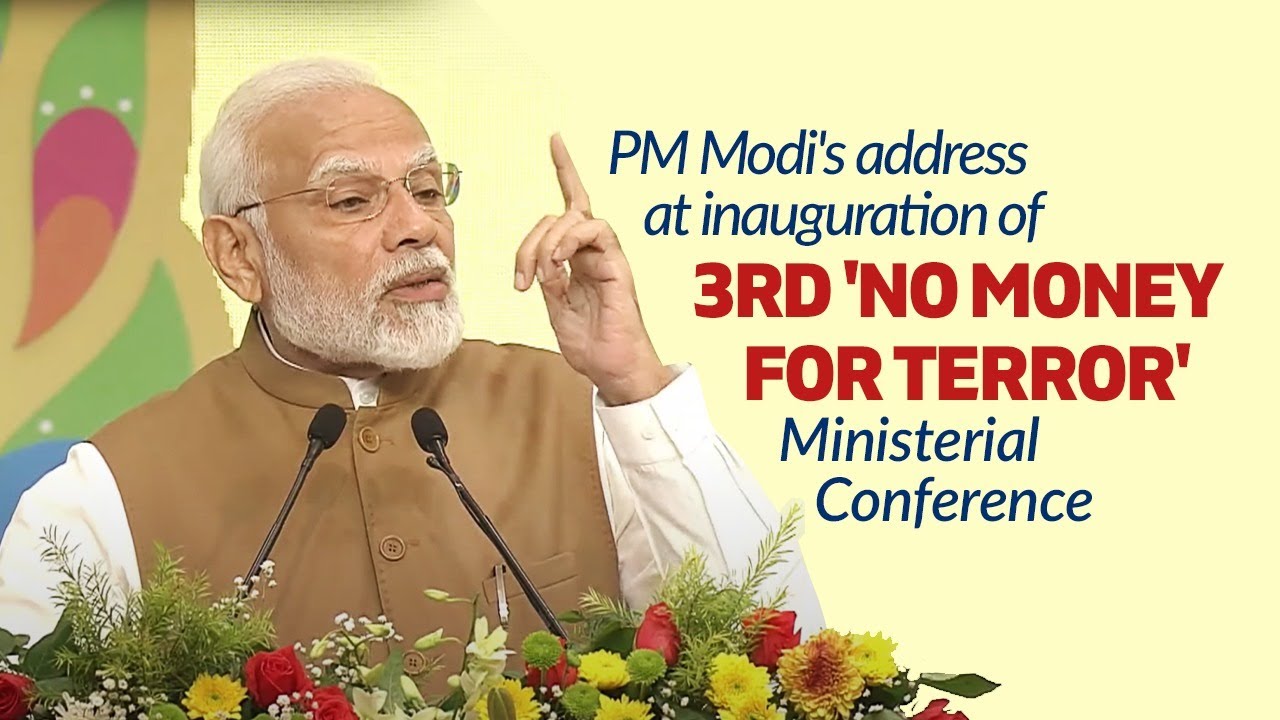The third Ministerial Conference on Countering Financing of Terrorism, “No Money For Terror” (NMFT) took place in New Delhi in November 2022, immediately following the UN Security Council’s Counter-Terrorism Committee sessions in October. India hosted the third edition of this conference in New Delhi, postponing it from 2020 due to COVID-19.
The Ministry of External Affairs press release said that, “Hosting of this conference shows the importance being given by the Modi Government to the issue of international terrorism as well as its zero-tolerance policy against this menace.” The purpose of the NMFT ministerial meeting is to exchange knowledge and effective strategies for preventing the financing of terrorism that can be used globally. In April 2018, France hosted the inaugural NMFT conference.
Twenty years after government-enforced restrictions on mechanisms for financing terrorism through UN resolutions 1267 (1999) and 1373 (2001), it is clear that financial investigations play a critical role in diminishing the ability of criminal networks to secure, distribute, and conceal illegal revenues. Countries must regularly examine the financing of terrorism in order to ensure that their policy resources are enough to meet new and emerging threats as circumstances change.
Digitisation of Currency and The Threat
It is true that the majority of terror organisations continue to use cash and hawala channels, despite counter-terror financing authorities in India focusing on monitoring organised digitised channels like credit/debit cards and money value transfer services (MTSS). However, the potential of misusing fintech services remains due to the nation’s rapid digitization. While cryptos aren’t a big issue right now, the use of drones to smuggle weapons, IEDs, and drugs over borders in our border states is starting to pose unique challenges for India.
Countries must review the financing of terrorism not only on a regular basis but also to make sure that their policy resources are matched to address new and emerging dangers as conditions change. Threatening national, regional, and international security is terrorism financing, which is also a felony that precedes money laundering.
At the background of this conference is the digital evolution. With currencies now being traded in the form of cryptocurrency, it has been a rising concern on the agenda of discussions surrounding funding terrorism. There are several speculative opinions in this regard – whether the rise of cryptocurrency would help ease mobilisation to fund terrorist activities.
Cryptocurrency is being hailed as the future of financial transactions, while partly it is true. The issue arises with the rise and development of crypto, especially with the speculations about its traceability.
Cryptocurrency and its Untraceability: a Boon for Terror?
Why crypto may seem as a lucrative alternate source of funding, it is important to analyse why this might be seen as an alternative in the first place.
One of the key topics discussed at the conference was the increasing use of cryptocurrency by terrorists to fund their activities. It has been reported that terrorists are using cryptocurrency to avoid detection and to move funds quickly and anonymously across borders. The decentralized nature of cryptocurrency makes it difficult for law enforcement agencies to track and trace transactions, making it a preferred method of payment for terrorists.
The conference also discussed the measures that can be taken to combat the use of cryptocurrency in terrorist financing. One of the recommendations made was to increase international cooperation and information sharing between law enforcement agencies to track and disrupt the flow of funds. The conference also stressed the importance of educating the public about the risks associated with cryptocurrency and the need to be vigilant when using these digital assets.
In an article describing the operations of the terrorist outfit. The article says that decentralized execution and centralised decision-making are features of terrorist groups. This implies that the top echelons of the leadership are responsible for creating any innovations in a terrorist group’s grand strategy. Nearly all of these examples show how innovation in grand strategy was adopted top-down, with individual leaders’ strong personalities and authoritarian leadership styles playing crucial roles in significant decision-making processes that altered the organization’s identity.
For terrorist organizations, the adoption of cryptocurrencies is a convenient and profitable way to finance their operations. This is especially true for local terror hubs that rely on grassroots recruitment and small to medium scale attacks. The pseudo-anonymity of cryptocurrency transactions allows these groups to easily receive funding from international sources without fear of detection through traditional financial channels. These local hubs may only receive start-up funds and an annual allocation of finance from their transnational headquarters, but the use of cryptocurrency allows them to also accept sizable donations from other sources in their region of operations.
We assume that the traditional framework for financing terrorism will always exist, but the simplicity of setting up potentially untraceable cryptocurrency transactions will strengthen a local hub’s strategy of evading the enemy’s web of defence and demolish the resource constraint that previously dominated the operational calculus of these transnational non-state actors.
In conclusion, the third Ministerial Conference on Countering Financing of Terrorism highlighted the growing threat of cryptocurrency in financing terrorism and the need for global efforts to combat this threat. The conference provided a platform for government officials, financial experts, and representatives from the private sector to come together and discuss ways to counter the use of cryptocurrency in terrorist financing.

